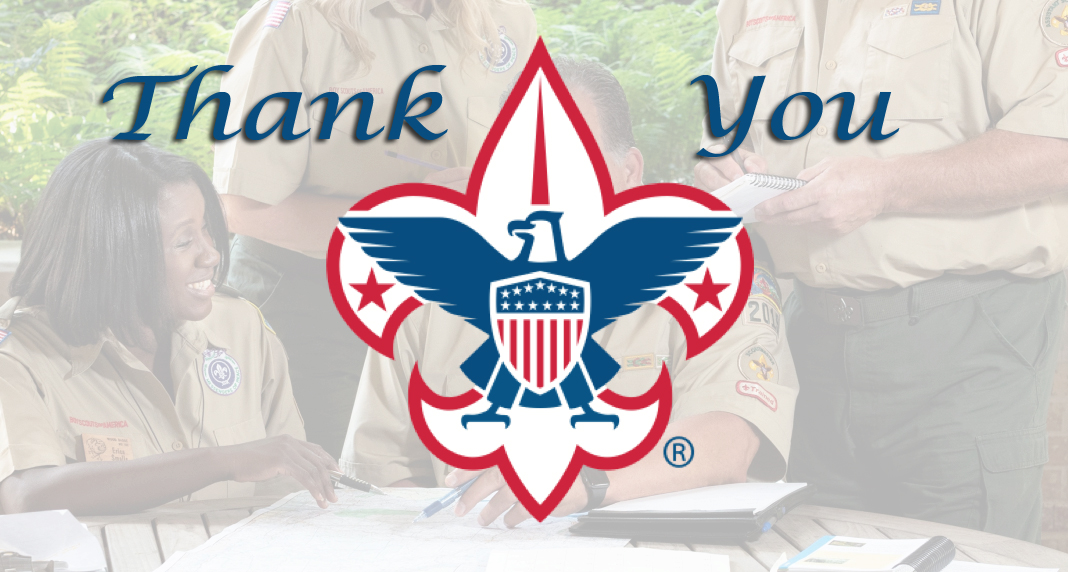8.0.4.1 Filing and Processing an Appeal
- The Scout should have received communication from the board of review advising actions that could lead to advancement and explaining appeal procedures. If this was not received, the Scout or the Scout’s parent or guardian should contact the council advancement chair, staff advisor for advancement, or the Scout executive to request it. To initiate the appeal, the Scout or the Scout’s parent or guardian prepares a letter notifying the local council of the appeal. It should detail the reasons it is believed the Scout met all the requirements and should not have been denied. The letter is sent to the council service center, to the attention of the council advancement committee. The communication from the board of review mentioned above should be attached.
- To assure all appeal requests are handled consistently throughout the council, they are first routed to the council advancement committee.
- The council advancement committee, through its chair or a designated member or its staff advisor, coordinates the appeals process. This designated appeals coordinator’s primary role is to get the paperwork in the right place and orient and guide those who will hear the appeal.
- The council-designated appeals coordinator routes a copy of the request to the district or council advancement committee according to local practices. It is recommended that appeals of a unit decision go to the district, and those elevated from a district go to the council. This allows an additional step before the National Advancement Program Team is involved.
- For appeals heard by a district, the district advancement chair and district staff advisor (usually the district executive) must agree on appeal-board members. The council advancement chair and staff advisor have the authority to approve them (or to call for different members) should they believe this action will lead to more equitable appeals consideration.
- If the appeal is to be heard by the council, then the council advancement chair and staff advisor must agree on appeal-board members.
- There shall be an odd number of appeal-board members—either three or five. A board chair may be one of these voting members, or serve additionally with no vote. All must be objective volunteers with thorough knowledge of advancement and appeals procedures. No individual who served on the original board of review or appeal board shall serve on a subsequent district or council appeal board for the same Scout. The council-designated appeals coordinator may be present and provide advice. No other guests, including the candidate’s parents or guardians, are allowed. If the Scout is being interviewed, and the Scout’s parents or guardians insist on attending with him, see “Conducting the Board of Review,” 8.0.1.0.
- The appeal-board meeting may be held via videoconference under the rare circumstances and the requirements found in “Boards of Review Through Videoconferencing,” 8.0.1.6.
- An appeal board is not another board of review. It focuses only on the issues that brought about rejection at the lower level(s). A majority is sufficient for a decision.
- If an appeal is rejected at the district level, the Scout or the Scout’s parent or guardian may appeal to the council advancement committee.
- If a council-level Eagle Scout board of review or appeal board rejects a candidate, then the Scout or the Scout’s parent or guardian may appeal through the local council to the National Advancement Program Team.
- A decision at any level that finds in favor of a Scout shall be final. Units, districts, and councils are not allowed to appeal them. Similarly, decisions for rejection delivered through the National Advancement Program Team are final. For rulings in favor of a Scout, the date of the original board— not the appeal board—is the effective date of advancement.
8.0.4.2 Appeal Board Must Research the Case
To allow time to research background and facts, appeal-board members must be organized in advance. Written statements or telephone interview summaries are obtained from those with pertinent knowledge of the case. These individuals might include the Eagle candidate, the unit leader and assistants, parent(s) or guardian(s), unit committee members, and, as applicable, a representative of the chartered organization or Eagle service project beneficiary. Every effort should be made to have balanced representation. Only appeal-board members and administrators with a need to know may see the evidence. If a face-to-face meeting with the Scout is impractical, extra care should be taken to collect information from the Scout’s perspective. After the meeting, any notes are filed with the council and destroyed once the appeal is resolved. A written report setting out the details of the appeal and the reasons for the decision shall be prepared and forwarded to the council Scout executive. A copy is sent to the Scout who brought the appeal.
Appeals forwarded to the National Advancement Program Team are processed through the local council. A designated appeals coordinator combines, into a packet, the Eagle Scout application and service project workbook (if at issue); all letters, statements, and interview summaries; and any reports or minutes from the original board of review and appeal board(s) held; and a cover letter from the Scout executive (not designee) briefly summarizing the facts and stating the council’s position.




